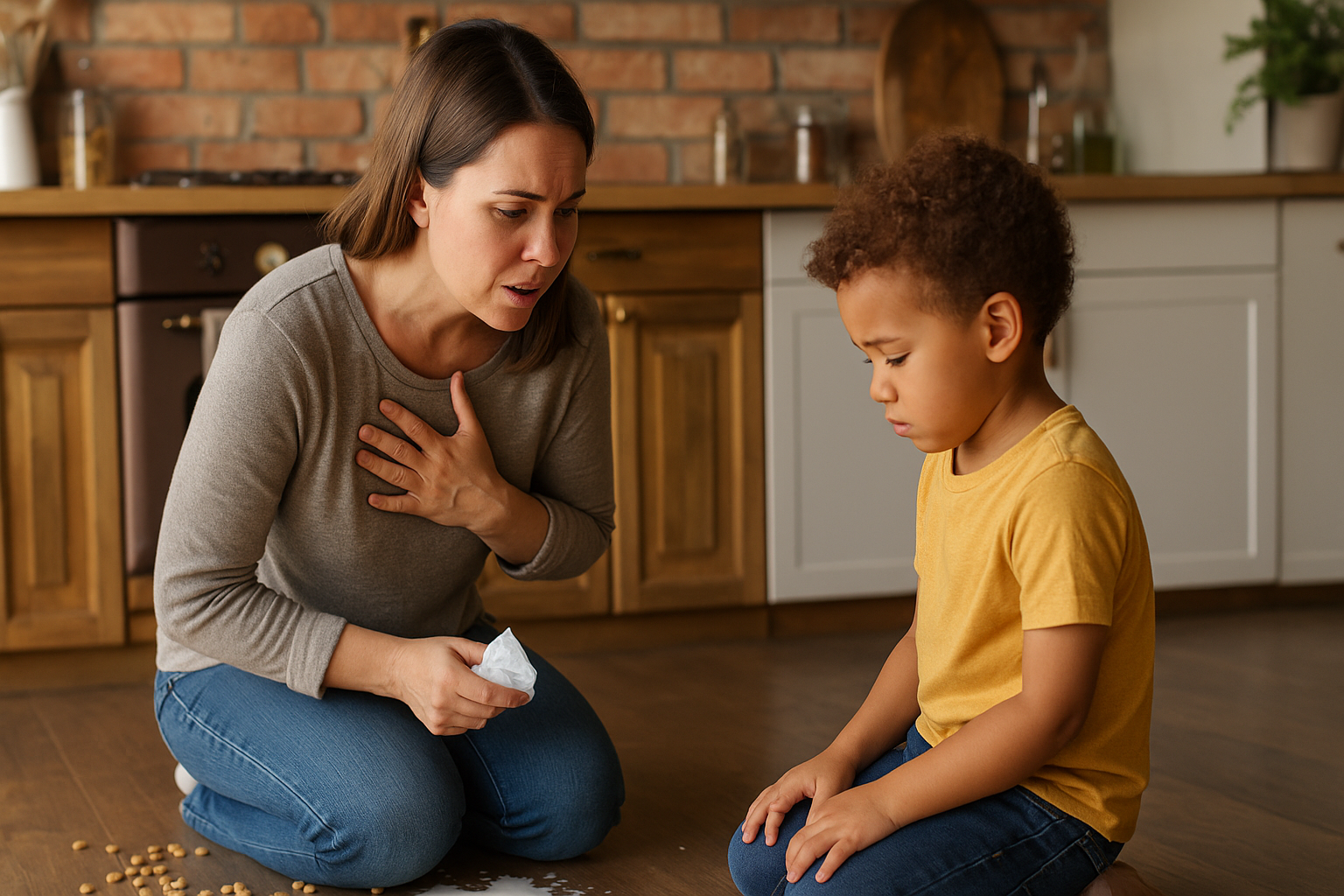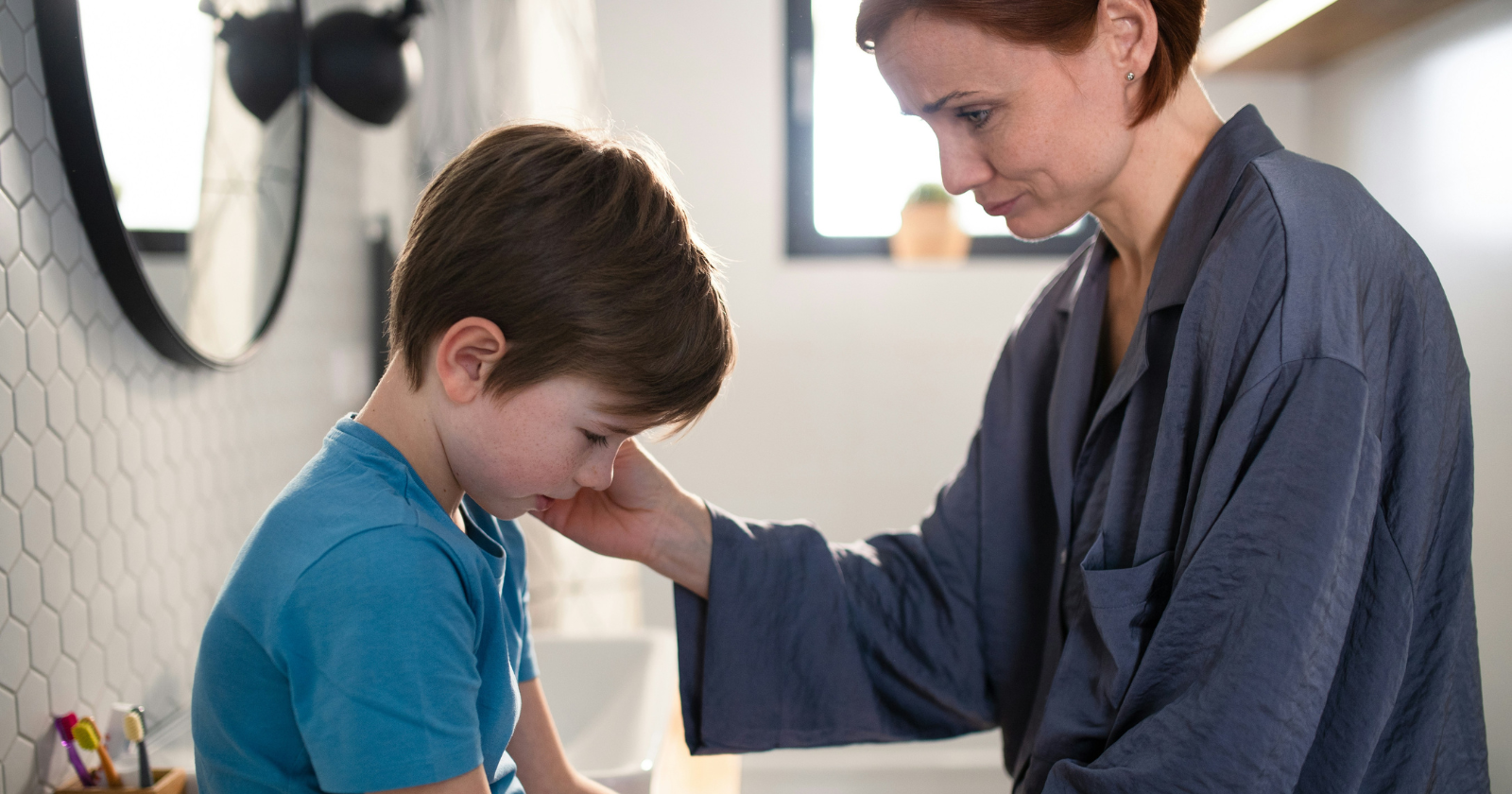Parenting is full of contradictions. We want to be patient, but sometimes we snap. We want to listen closely, but our minds wander to work emails or the grocery list.
We want to enjoy bedtime snuggles, but our own exhaustion gets in the way.
The truth? None of us get it right all the time. But one thing that makes a huge difference is apologizing.
Saying “I’m sorry” to our kids doesn’t make us weak—it models strength. It shows them that mistakes are normal and relationships are worth repairing.
And if you’ve ever said sorry for the moments below, you’re already doing better than most parents realize.
1) Snapping when you’re tired
We’ve all been there: the dishwasher’s humming, the inbox is overflowing, and a fight over a purple cup pushes you past the edge. You raise your voice louder than you meant to.
Later, telling your child, “I’m sorry I yelled, I was tired and overwhelmed,” gives them two important lessons.
First, emotions are part of life. Second, we can take responsibility and make things right afterward.
Kids don’t need us to be perfect. They need to see how repair looks in real time.
2) Rushing them through their feelings
How many times have you said, “You’re fine, let’s go,” when your child was clearly not fine? I’ve done it more often than I’d like to admit—usually when we’re late for school or I’m trying to keep nap time on track.
But children don’t process emotions on a schedule. Saying, “I’m sorry I brushed past your feelings earlier. Do you want to tell me now?” keeps the door open.
Related Stories from The Artful Parent
- Psychology says adult children who stop visiting their parents aren’t being neglectful — they’re often protecting an emotional bandwidth that was depleted long before they ever left home
- The parents whose adult children call every week aren’t necessarily the ones who gave the most — they’re usually the ones who made it safe to be honest about small things before the big things ever had a chance to pile up
- Psychology says the generational clash between boomers and millennials isn’t really about politics or work ethic — it’s two groups of people who are both exhausted and neither one feels seen by the other
As noted by Dr. John Gottman, dismissing children’s emotions can chip away at their self-trust. Even just a few extra minutes of validation helps kids feel safe in their own skin.
3) Forgetting to follow through
When Greta was four, I promised we’d bake muffins after lunch. Then a client call ran long, and by the time I looked up, it was bedtime.
She remembered, of course, and asked about those muffins for weeks.
Apologizing—“I forgot, and I’m sorry. Let’s plan it for Saturday and write it on the calendar so I don’t miss it again”—turns a broken promise into a chance to model accountability.
Kids watch how we handle mistakes. If we own up, they learn to do the same.
4) Overreacting to small messes

Emil once poured half a bag of flour onto the floor while “helping” me cook. My reaction? A loud groan, followed by a sharp, “Seriously?!”
- I’m 65 and these are the things I completely stopped caring about that my younger self would have obsessed over — and my life has never been more peaceful than it is right now - Global English Editing
- I’m 65 and I have a stronger bond with my granddaughter than I ever had with my own children — and the reason isn’t what people think: it’s that I finally understand the difference between raising someone and actually knowing them - Global English Editing
- Psychologists explain that people who cause the deepest emotional damage are almost never the ones who explode — they’re the ones who operate through these 10 patterns subtle enough to make you blame yourself - Global English Editing
Later, I crouched down and said, “I’m sorry I got upset. You were trying to help.” His face softened instantly.
Apologizing here teaches that effort matters more than perfection. Messes can be cleaned up.
What sticks is whether kids feel shamed or encouraged when they try.
5) Interrupting their play
Play is work for kids. It’s how they practice problem-solving, storytelling, and patience. But I’ll admit—sometimes I barge in with “Clean up now!” or “No, don’t do it that way!”
A quick apology afterward—“Sorry I cut you off, your game looked fun”—sends a powerful message. It tells kids their creations matter.
As parenting author Janet Lansbury has said, when adults respect play, kids learn to trust their own ideas. And isn’t that what we want most?
6) Not listening fully
I’ve caught myself nodding at Greta’s long, detailed stories while mentally running through my to-do list.
And without fail, she’ll stop mid-sentence and say, “You’re not listening.”
Instead of brushing it off, I’ve learned to own it: “You’re right, I wasn’t. I’m sorry. Can you tell me again?”
It matters because kids notice when we fake attention. Apologizing restores trust.
It tells them their words are worth real focus, not just half an ear.
7) Losing patience at bedtime
Bedtime in our house can feel like a never-ending loop: “One more story, one more sip of water, one more stuffed animal.” After a long day, it’s tempting to rush through.
But I’ve seen the difference when I pause later and whisper, “I’m sorry I was short with you tonight. Tomorrow we’ll slow down.” Those words matter more than the actual routine.
They show my kids that even when the day ends messy, our bond is still steady.
And honestly? That apology is as much for me as it is for them. It’s a chance to reset.
8) Saying no without explaining
Sometimes, out of sheer exhaustion, I’ll fall back on “Because I said so.” It works in the moment, but it leaves kids frustrated and confused.
Apologizing later—“I’m sorry I didn’t explain why. Here’s the reason…”—turns a power struggle into a respectful exchange. They may not like the answer, but at least they understand it.
As Dr. Laura Markham has noted, when children grasp the “why,” they’re more likely to cooperate without resentment. Respect breeds cooperation far more effectively than fear.
Final thoughts
Parenting isn’t about flawless execution. It’s about repair. It’s about showing our kids that mistakes happen, but love and respect are strong enough to bridge the gap.
Every apology we offer is a mini-lesson in humility, empathy, and resilience. And those are lessons kids carry for life.
If you’ve ever said “I’m sorry” for yelling, rushing, forgetting, or any of the eight moments above—you’re not failing.
You’re raising kids who know that relationships can bend without breaking, and that respect flows both ways.
And that, in my book, is parenting done right.



